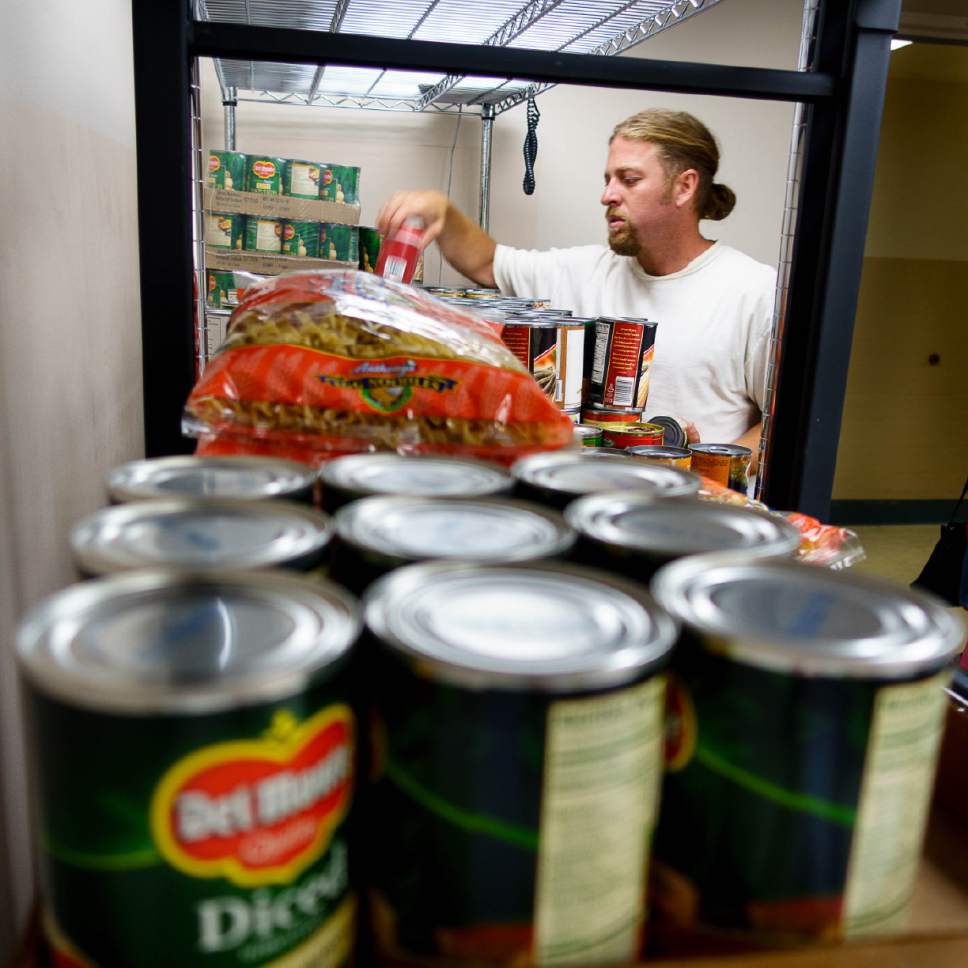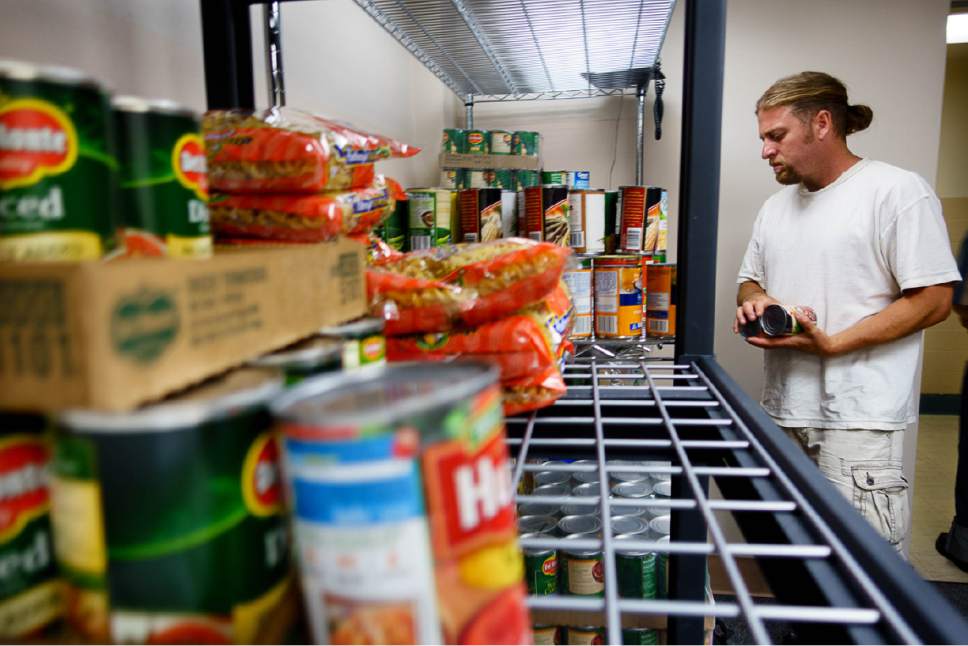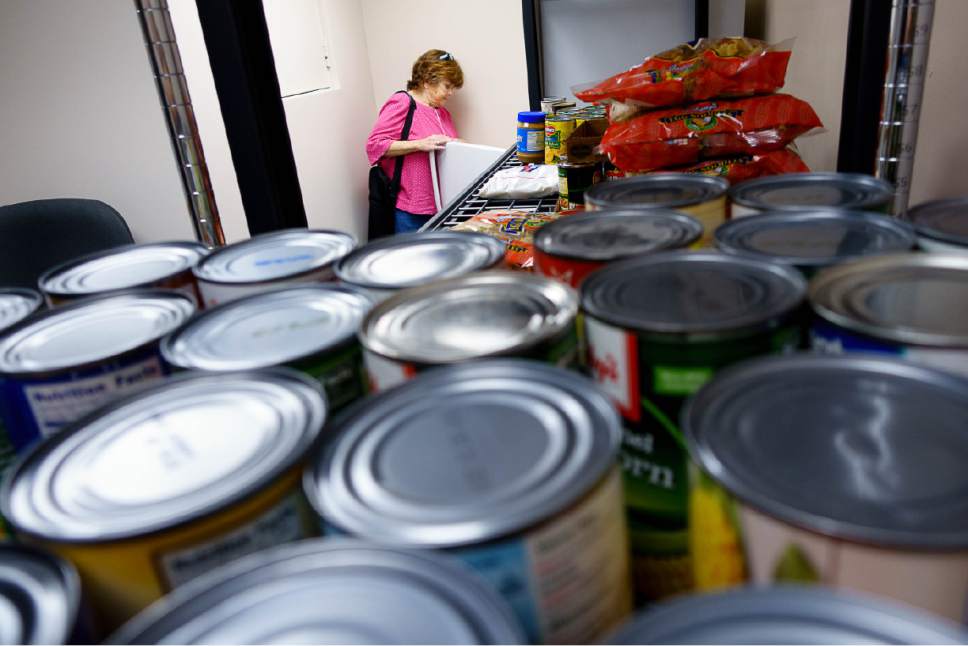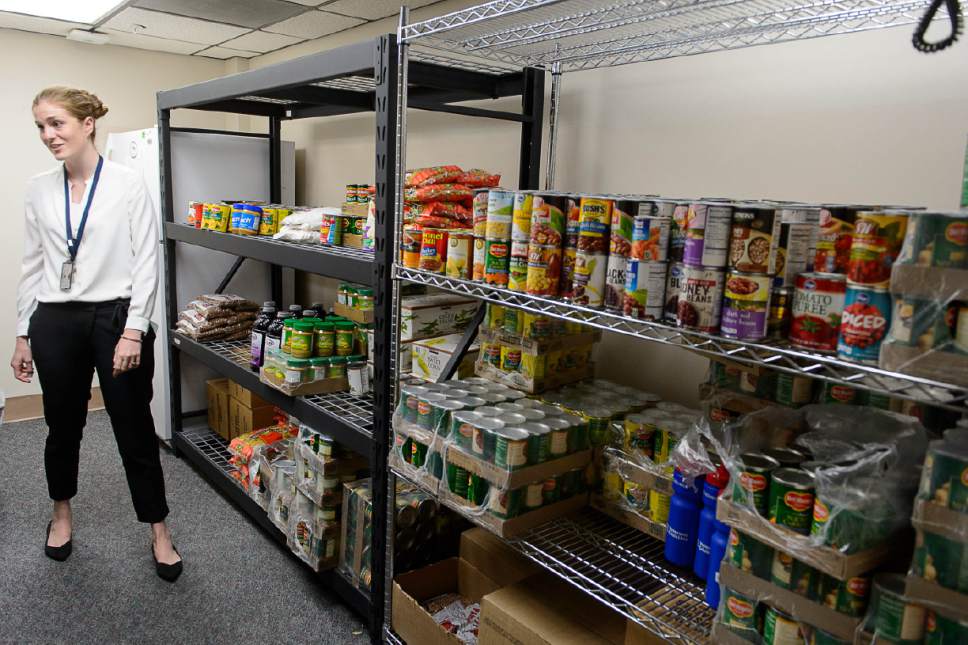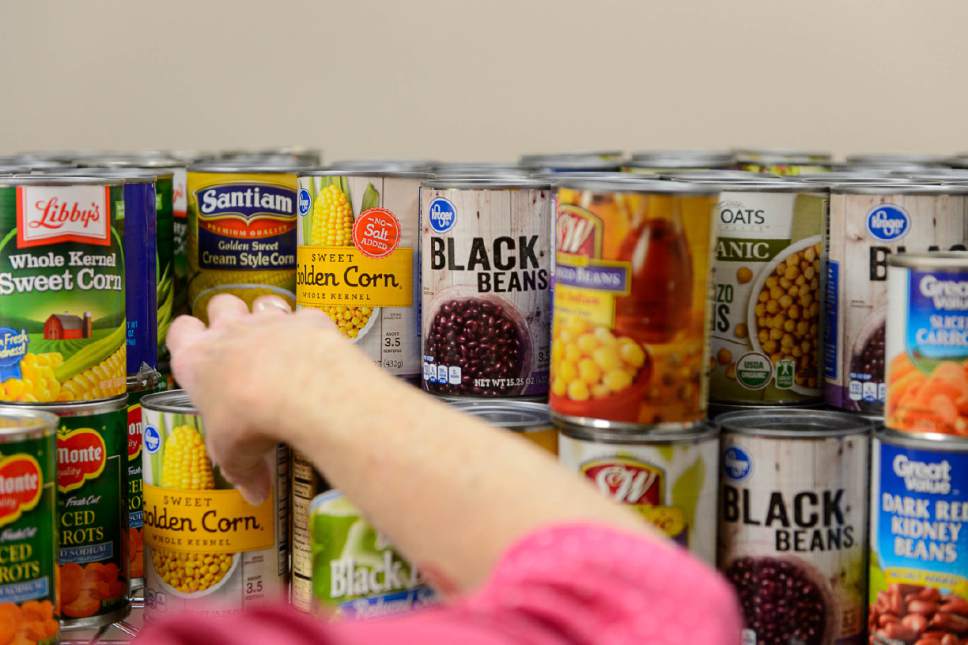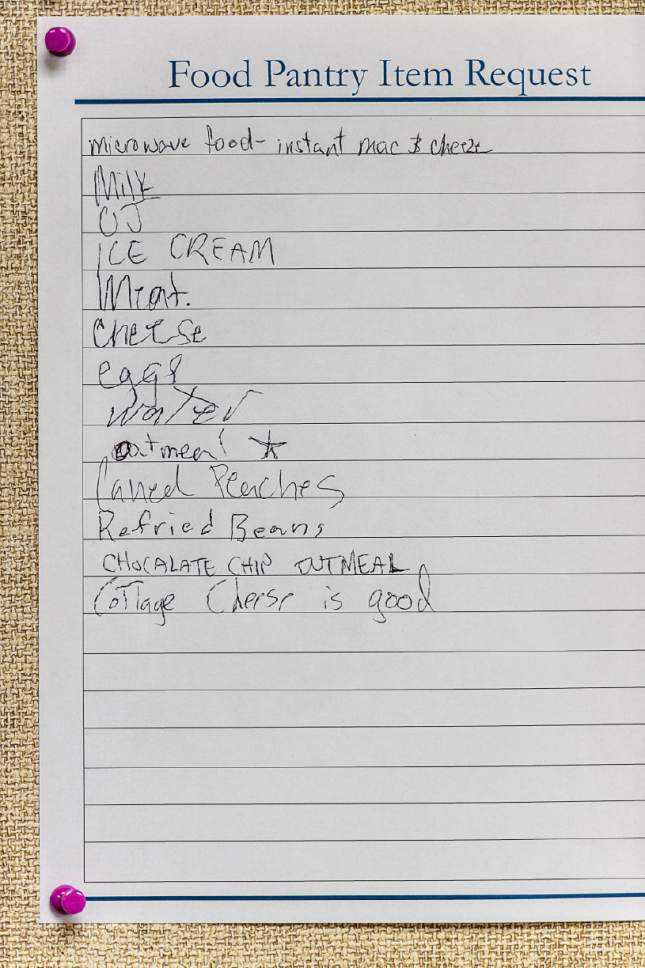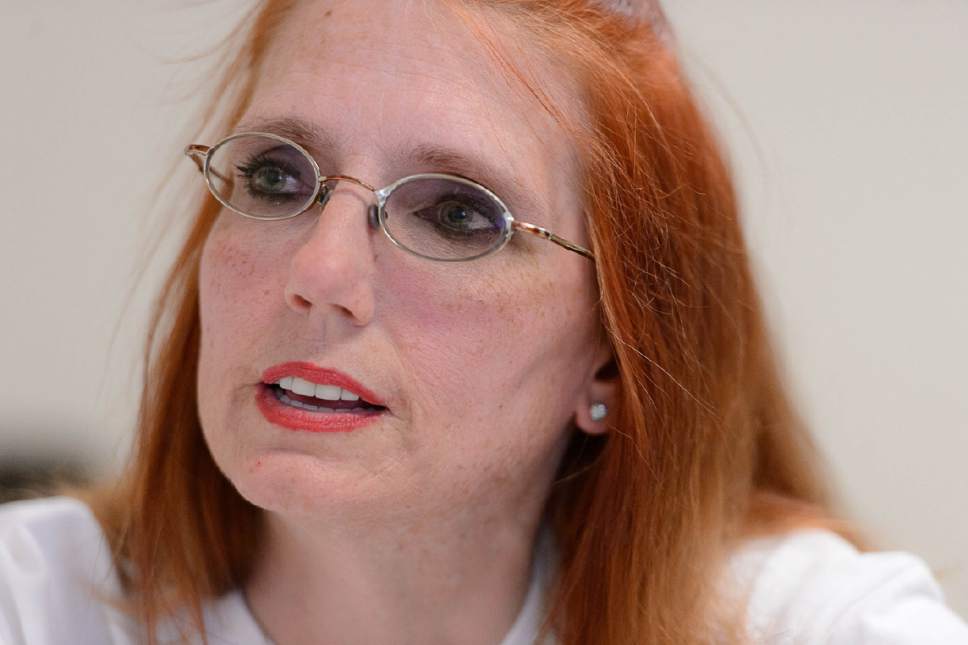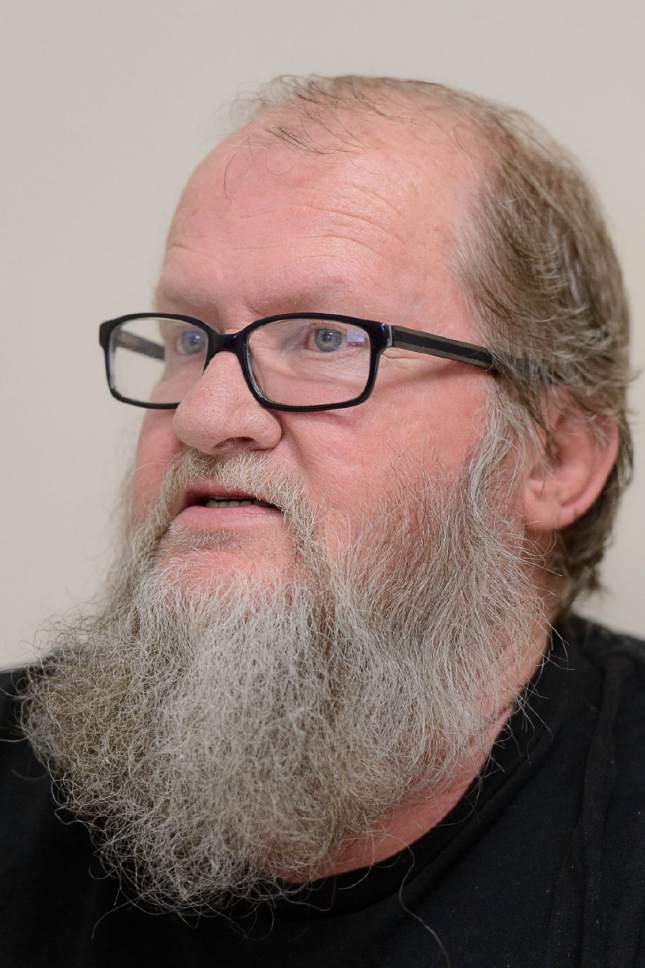This is an archived article that was published on sltrib.com in 2017, and information in the article may be outdated. It is provided only for personal research purposes and may not be reprinted.
Navy veteran Carl Callahan and his wife, Shannon, receive about $1,600 in Social Security benefits each month.
They use it to pay rent and utilities on their South Salt Lake apartment, which the Department of Veterans Affairs helped them find after a stint of homelessness two years ago. They use it to pay their cellphone bills and buy gas for the car. Sometimes they use it to pay medical bills for Shannon, who takes frequent trips to the hospital for her asthma.
By the time the bills are paid, Callahan said, about $100 is leftover for groceries — "if we're lucky."
That's why the couple makes weekly trips to a new food pantry at the George E. Wahlen Department of Veterans Affairs Medical Center. Opened in March, the pantry already serves close to 100 veterans and their families per month, said Natalie Green, a VA health care administration trainee who started the program.
Late last year, Green said, she realized the extent of the veteran hunger problem. Some 1.7 million veterans experience food insecurity annually. And for younger veterans who served in Afghanistan and Iraq, the food insecurity rate is about 27 percent — nearly double that of the general U.S. population, according to a University of Minnesota study.
Green said she was surprised to find only four other VA hospitals nationwide with a food pantry, and those operated only a day or two each month.
"We have veterans coming back with an immense need for support," she said. "We know food and nutrition directly affects health outcomes, yet [access to food] was something that was kind of missing from the whole health picture."
Part of the problem, Green quickly learned, was that VA funds couldn't be allocated for a food pantry. They must be used for traditional medical services. So she had to get creative.
So Green set up an external account that could accept donations for the pantry. She secured a vacant room, lined up a partnership with the Utah Food Bank, and procured canned food donations from the VA staff. She documented her policies and procedures so other VA hospitals could follow a similar path.
"She cut through the bureaucratic red tape," VA Salt Lake City spokeswoman Jill Atwood said.
On a recent Thursday, two veterans were sitting in the hallway outside the pantry at 2:30 p.m., waiting for Green to unlock the door. The pantry stocks the usual assortment of canned food. And depending on donations, Green also tries to stock nutritional items such as milk, eggs, meat, fruits and veggies — items Callahan and others say often are impossible to find at other food banks in the area.
"This was a godsend, really," said Rebecca Clark, an Air Force veteran who served in the Gulf War.
Her husband, Jesse, also served in the Air Force and had a $90,000 job in aircraft maintenance until he got hurt about five years ago, Clark said. "Everything started going downhill fast after that," she said.
The couple recently came to the VA in search of housing assistance — they now live in a hotel — and were told about the food pantry.
"It helps a lot because with all the other food banks, with the amount of disability we're getting, they're like, 'Oh, you make more than $200 too much, so you can't come here.' " Clark said. "And the church is like 'Well, you're not a member, so you can't come here.'
"We would stretch out one meal a day until we got here," she added. "Now, we can buy meats, and this gives you everything else."
Callahan, 62, was an electronics technician aboard the USS Constellation in the late 1970s. He visits the VA often for help with his memory loss, depression and post-traumatic stress disorder, he said. Now he also comes for the food pantry.
"It's just been tough financially, trying to keep up with everything," Callahan said.
"Places like this really help out."
Twitter: @lramseth V.A. food pantry
The food pantry is in Room GA13 in Building 3, at the George E. Wahlen Department of Veterans Affairs Medical Center , 500 Foothill Drive, Salt Lake City. Hours are from 2:30 p.m. to 4 p.m. Thursdays.
To donate, contact Natalie Green at 801-582-1565, ext 1957, or natalie.green3@va.gov.


